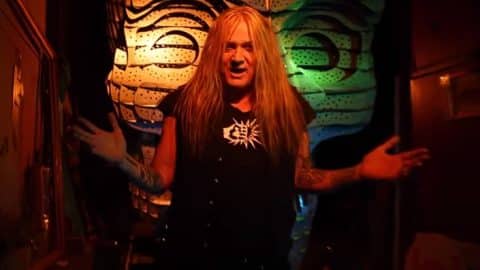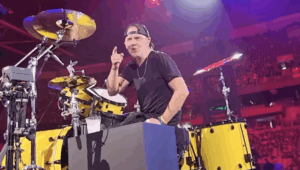Sebastian Bach Gets Offer To Become AI

via Sebastian Bach / YouTube
Sebastian Bach, the former frontman of Skid Row, recently opened up about a surprising offer he received—to license his voice and name for use in artificial intelligence applications. In an interview with Heavy Interviews, Bach discussed the proposal and his immediate, visceral reaction to it. His response highlights the growing tension between artists and emerging technology.
As AI continues to evolve, its role in the music industry has become more prominent. From voice emulation to full-song generation, machines are now capable of mimicking human creativity with alarming precision. For musicians like Bach, the prospect of losing control over their voice and image raises deep concerns.
Bach’s reaction wasn’t just about discomfort with new technology—it was about protecting something he considers sacred: his voice. He made it clear that no algorithm or synthetic version could replicate what he brings to a track. For him, it’s not just about sound; it’s about soul.
View this post on Instagram
“That’s Mine”, Bach Draws the Line
When asked about how his role as a vocalist has changed, Bach used the moment to reveal the AI offer. “I had a businessman reaching out… so anybody could use my voice to make music. And I’m like f*ck that sh*t,” he shared. His raw honesty underscores a refusal to let technology commodify his artistic identity.
Others tried to convince him it was the future. They told him it was inevitable—that he could either be part of it or risk being replaced. But Bach didn’t budge. He didn’t want to be part of an industry trend that made his art feel like just another tool for content creation.
In his words, “I don’t want any of you to have my voice. That’s mine.” For Bach, singing isn’t just a performance—it’s personal. His strong stance echoes growing concerns among musicians who fear that AI might blur the line between artist and machine to the point of erasure.
View this post on Instagram
The Rise of AI Imitation in Music
Sebastian Bach’s skepticism isn’t unfounded. Academic institutions like the University of Washington have developed powerful AI tools like MusicNet to teach machines how to recognize and replicate classical music. In one study, AI systems were trained to analyze the signature traits of Johann Sebastian Bach’s compositions.
This kind of innovation shows how AI can imitate not just style, but structure and emotion. Researchers can now program algorithms to write music that closely resembles the works of great composers—and perhaps even vocalists. This raises ethical questions about authorship, originality, and artistic integrity.
Beyond classical music, the trend has spread into pop, hip-hop, and rock. From AI-generated Drake songs to Elvis soundalikes, the tech is already reshaping music production. Artists like Bach are pushing back not because they’re anti-progress, but because they fear losing control of their essence in the process.
View this post on Instagram
Between “I” and “A”
Bach admitted he doesn’t fully understand AI, joking, “I’m just into I. I’m not into A.” But his gut-level reaction speaks volumes. In a digital age where anything can be simulated, the value of the genuine human experience becomes even more important to protect.
His concerns mirror a larger debate happening across the entertainment industry. Actors, voice actors, and musicians are increasingly being asked to surrender their likeness and sound to machines—often for convenience or commercial gain. Many, like Bach, aren’t willing to go quietly.
As AI’s influence grows, the music world must grapple with new definitions of authenticity and ownership. Sebastian Bach’s refusal to license his voice is more than just defiance—it’s a statement. A reminder that behind every legendary performance is a human being who still wants to be heard as himself.
View this post on Instagram











